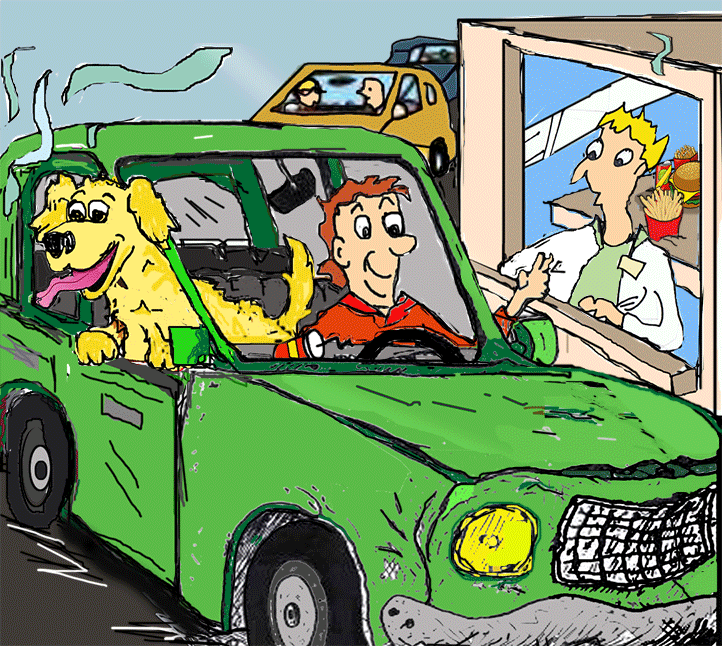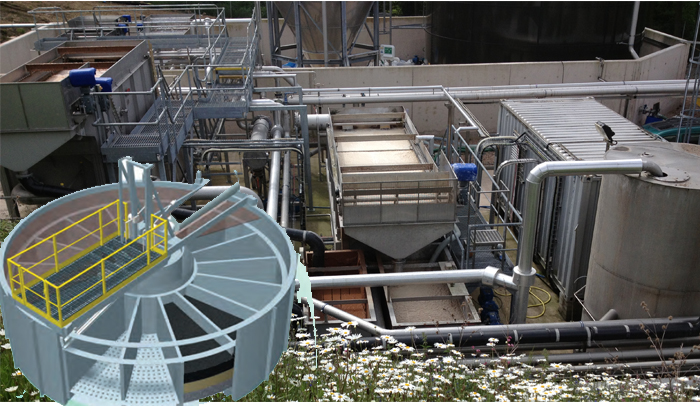I swung speedily into the drive-through. The greasy smell of fast food filled my nostrils, causing the saliva to pool in my mouth in anticipation. My stomach rumbled with hunger. Next to me Rambo panted eagerly. Another late day at the office. No time or energy to arrive at home and start whipping up some healthy concoction. I pictured my fridge’s contents. A couple of beers, a few eggs, some out-of-date bread, and if I was really lucky, some milk.
I enthusiastically gave my order for a huge box of fried chicken and chips.
Some time later, replete and stuffed, I scrubbed with some difficulty the greasy remnants of our feast off my fingers, watching the water swirling away down the drain. What happens to that grease? Who treats that? I wondered.
In today’s world how do we deal with our wastewater?
Each day in Auckland approximately 400 million litres of wastewater from homes, industries, and businesses is collected. This water must be treated before it can be released back to the environment.
The major aim of wastewater treatment is to remove as much of the suspended solids as possible before the remaining effluent, is discharged back to the environment.
Wastewater treatment is critical for our environment and for our own health.
But it is vital that we find the right technology for the right product and process.
To avoid the greases and oils coating the waste pipes, treatment at individual waste producing sites is encouraged. Dissolved Air Flotation (DAF) is an effective industrial and municipal wastewater treatment, clarification, and thickening technology.
DAF is a water treatment process that clarifies wastewater by the removal of suspended matter such as oil or solids, as well as heavier settled matter.
Compact, efficient, simple to operate and economical to run DAF plants provide the solution to many wastewater treatment problems.
BUT why use a DAF Plant?
Pre-treatment of trade wastewater by Dissolved Air Flotation (DAF) is a commonly used best practice option, where grease arrestors or other simple passive pretreatment devices are inadequate. At its heart, micro-fine bubbles of air generated in the DAF vessel combine with insoluble contaminants, such as grease and fats, in the wastewater, lifting them to the surface. Mechanical scrapers remove the floating sludge layer and the purified wastewater discharges to the sewer. This achieves superior results at higher flow and contaminant loadings than can be achieved by conventional gravity separation technologies.
Industrial activity DAF units are widely used for treating industrial trade wastes high in solids, grease and insoluble BOD. Most industrial processes (including food manufacturing) cannot maintain adequate trade waste discharge quality through a conventional grease arrestor or settling pit.
Dissolved air flotation (DAF) is a proven and effective physical/chemical technology for treating a variety of industrial and municipal process and wastewater streams. DAF systems are commonly used for the removal of oils & greases and suspended solids to meet a variety of treatment goals including:
- Product recovery and reuse
- Pretreatment to meet sewer discharge limits
- Pretreatment to reduce loading on downstream biological treatment systems
- Polishing of biological treatment effluent
- Thickening of bio solids
KWI DAF equipment (exclusively offered by Jonassen Industrial Projects Limited) is designed and manufactured by the KWI Group. Originally known as Krofta Engineering and Krofta Waters Inc. the KWI Group are world leaders in Dissolved Air Flotation for Industrial Wastewater Treatment, Potable Water Treatment and Biological Wastewater Treatment plants. KWI holds more than 100 patents registered by the company worldwide. With more than 4,300 installations in 77 countries, the KWI range includes designs for water and wastewater treatment systems across all industrial and municipal applications.
In anticipation of the needs of a changing world, KWI has developed seven DAF clarification design platforms, a complete range offered worldwide to solve today’s and tomorrow’s wastewater treatment challenges.
JIPL and KWI make it their mission to provide the best engineered and cost effective solutions for our customers and to provide the best technical & maintenance backup service. With the strength of KWI’s experience and with technology transfer arrangements across a range of international experts, JIPL is confident that a solution can be found for your every problem using the very latest technology in water conditioning and treatment.
Contact Chris or Blair for more information on 09 479 3952, or email: [email protected]


